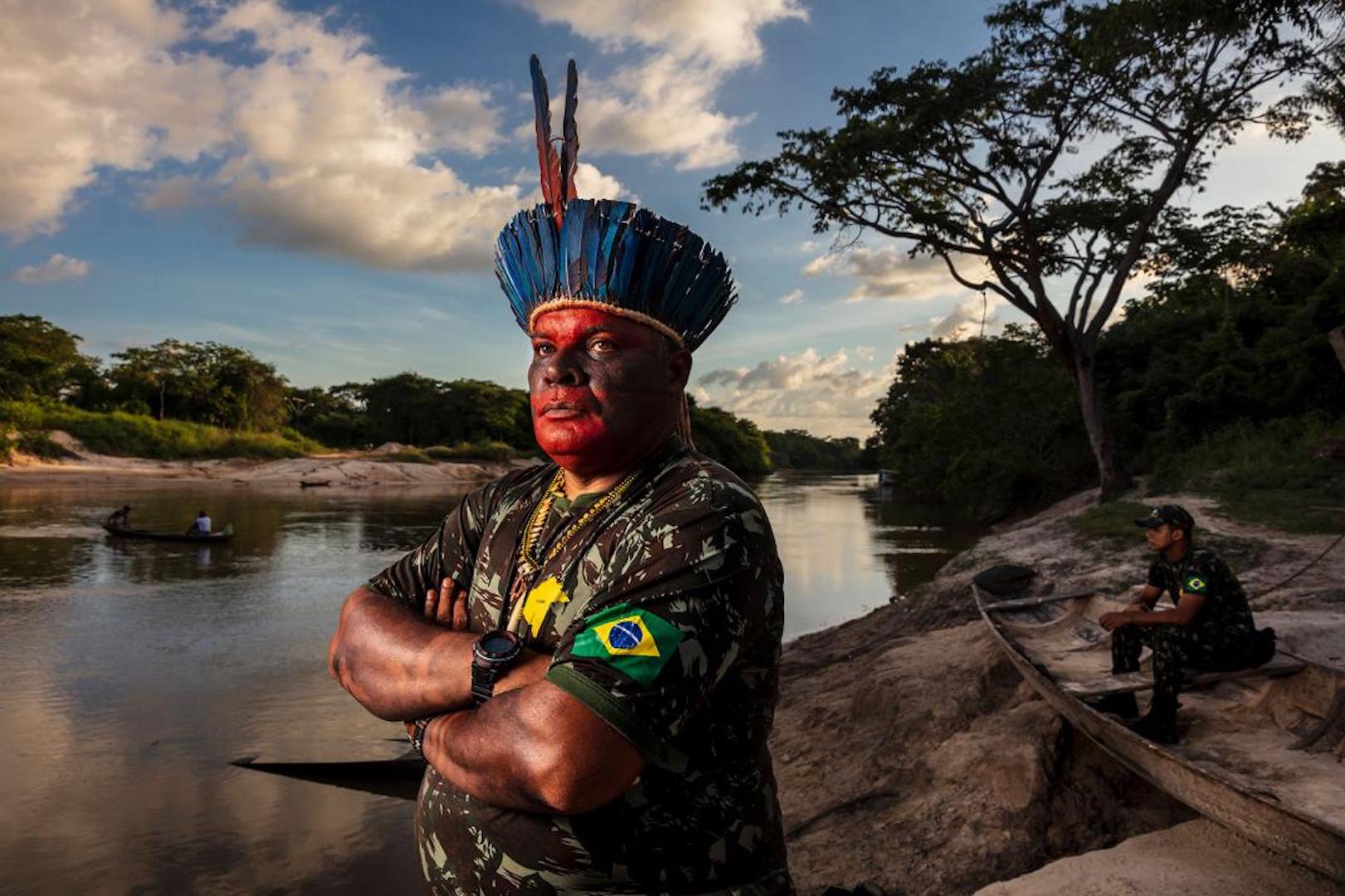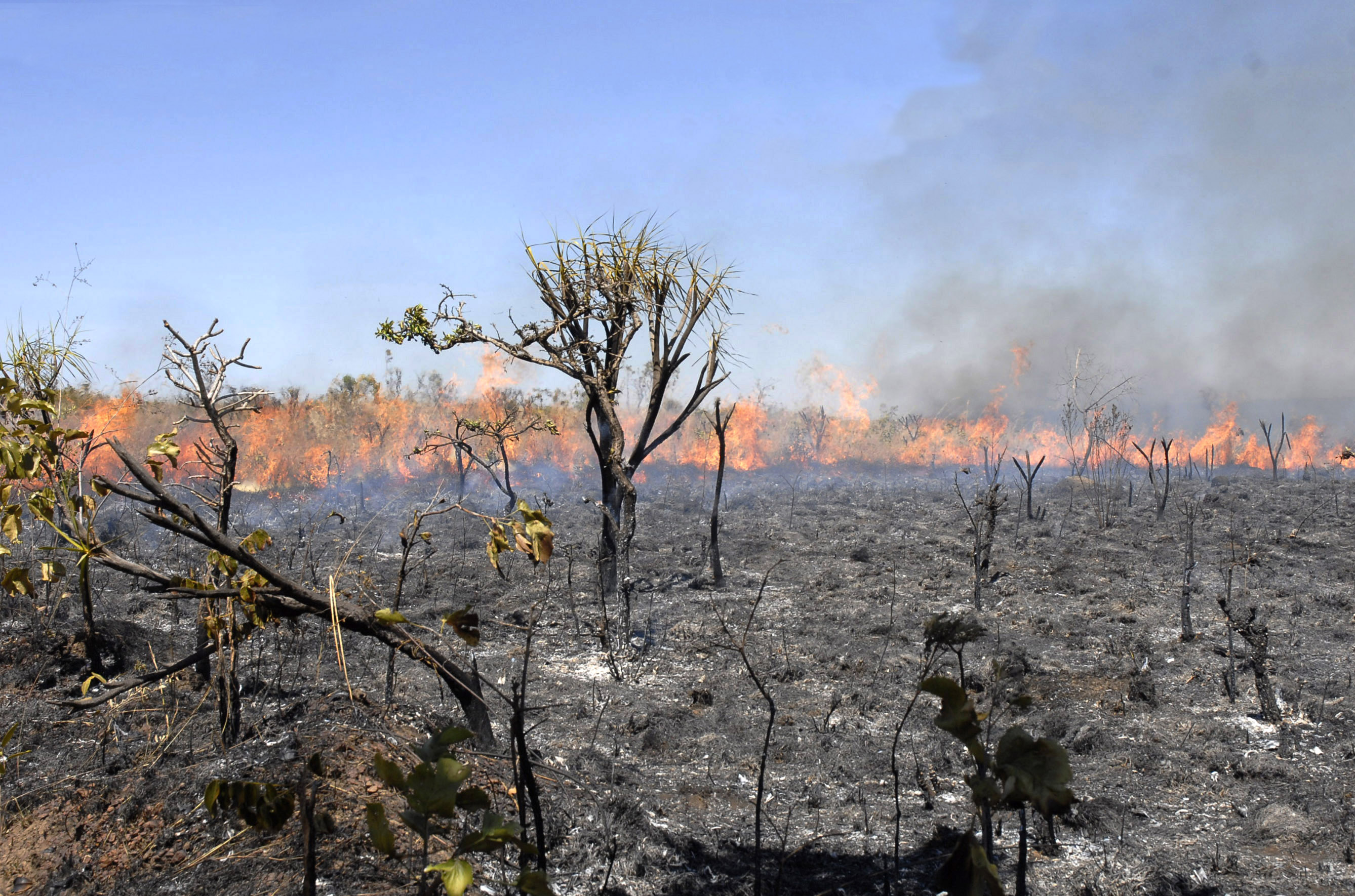SÃO PAULO, BRAZIL – Deforestation and burning in the Amazon region are linked to mafia-like groups that pay for armed militia against those who try to report crimes, says a report by non-governmental organization Humans Rights Watch (HRW).

“Illegal deforestation in the Brazilian Amazon is driven largely by criminal networks that have the logistical capacity to coordinate large-scale extraction, processing, and sale of timber, while deploying armed men to protect their interests,” says the report issued last week by HRW.
Calling them the ‘ipê mafias’, HRW says these groups’ ultimate goal is to “clear the forest to make room for cattle and crops” and will strike back at anyone who tries to stop them. The Ipê tree is one of the most valuable and sought-after trees in the Amazon forest due to the high quality of its wood.
Some of the targets of these mafias are environmentalists, indigenous peoples, and public officials – the so-called ‘defenders of the land’, according to the report dubbed “Mafia of the Ipê: how violence and impunity drive deforestation in the Brazilian Amazon”.
“Brazilians who defend the Amazon face threats and attacks from criminal networks involved in illegal logging,” stated Daniel Wilkinson, director of human rights and environment at HRW during a press conference.
“The situation is only getting worse with President Bolsonaro, whose attack on environmental protection bodies endangers the forest and the people who live there,” added Wilkinson.

The report mentions data from the Pastoral Land Commission (CPT) of the Catholic Church, which show that more than 300 people have been killed during the last decade due to conflicts over the use of land and resources in the Amazon region.
The CPT data also show that the culprits in these killings are rarely brought to justice. Of the more than 300 killings registered since 2009, due to land conflicts, only fourteen have gone to trial, according to the Commission.
“Until Brazil takes urgent action against the violence and illegality that facilitates illegal logging, the destruction of the world’s largest rainforest will continue unbridled,” concluded Wilkinson.
Although the report says that the problem of deforestation and illegal logging has been occurring for a long period of time, the report notes that Brazil’s president, Jair Bolsonaro, has shown little interest in halting the illegal activities.
“On the contrary, he has scaled back enforcement of environmental laws, weakened federal environmental agencies, and harshly criticized organizations and individuals working to preserve the rainforest,” says the report.
According to HRW Bolsonaro’s words and actions ‘have given a green light to the criminal networks involved in illegal logging’.
The Bolsonaro administration is hindering Brazil’s ability to fulfill its commitment to the Paris Accord to reduce its greenhouse gas emissions and help mitigate global warming, says HRW officials.

“By failing to investigate the death threats, authorities are abdicating their duty to try to prevent violence by the criminal groups involved in illegal deforestation, and increasing the likelihood that the threats will be carried out,” notes the report.
According to HRW, for Brazil to meet its Paris Accord commitment it will need to stop the criminal groups that are conducting much of the deforestation and protect those who are struggling to protect the forest, the so-called ‘defenders of the land’.
Since 2004, Brazil has had a program to protect defenders of human rights, including environmental defenders. According to data from the Brazilian government, more than 400 people are enrolled in the program across the country.
Among the key recommendations specified by HRW to Brazil’s government are: to take urgent steps to end impunity for acts of violence related to illegal deforestation in the Amazon; support and protect its forest defenders; and strengthen environmental protection in the Amazon rainforest as part of its human rights obligations.
The report was the result of more than 170 interviews conducted between 2017 and 2019. Among those interviewed were police officers, local prosecutors, agents of the Brazilian Institute of Environment (IBAMA), Chico Mendes Institute for Biodiversity Conservation (ICMBio) and National Indian Foundation (Funai), and indigenous people, as well as local community leaders and farmers.
“The purpose of [the report] is to document intimidation and violence against people who defend the forest. The conclusion is that there are criminal networks in the Amazon that are involved in large-scale illegal logging and other crimes such as land grabbing and, in some cases, illegal mining and drug trafficking,” concluded Cesar Munoz, researcher and author of the Human Rights Watch report.
For HRW, as long as this violence continues unchecked, so too will the destruction of the rainforest, the preservation of which is crucial to Brazil’s efforts to reduce greenhouse gas emissions and to the world’s effort to mitigate climate change.

